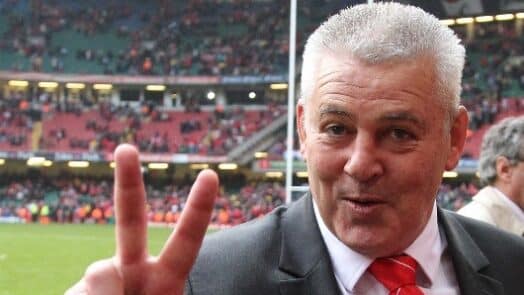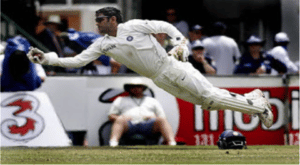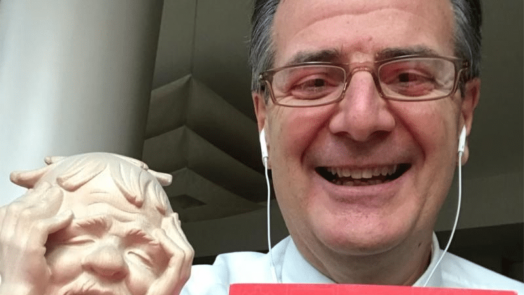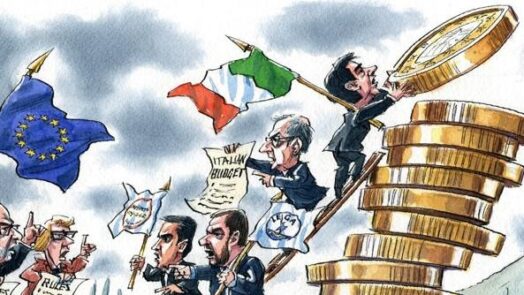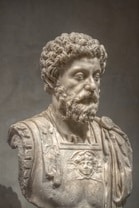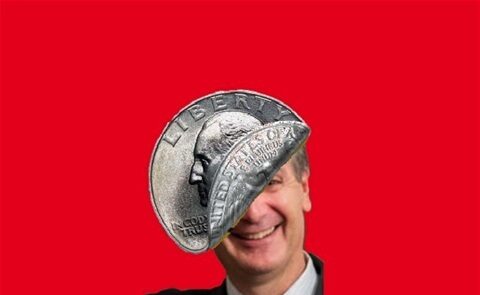Fate’s arrow when expected travels slow
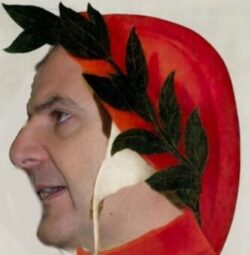
Dante, the Italian supreme poet is making his journey, “La Divina Commedia”, into Heaven when, about the Mars circle, he meets his great-great-grandfather, Cacciaguida, now a pure soul.
Dante is eager to know about his future. He insists with Cacciaguida to know what will be his destiny, whatever good or bad it will be, and says: ”Fate’s arrow, when expected, travels slow”.
The ancestor shares with him that he would have to leave his more loved things and this is the arrow the Exile Bow would shoot out. Despite knowing it, when Dante is back to Florence, though expected, he could not manage to dodge being exiled.
Fast forward 720 years, The Happy CFO (THC) is interested to understand if in the business world that statement stands: “Is it true that knowing the destination of your career, of your company make “the arrows” travel slow?”.
In one of his famous imaginary interviews, The Happy CFO invited Paul Polman, former CEO of Unilever, the man that according to a famous article with the NY Times wants to “reinvent Capitalism” and Emmanuel Faber, former CEO of Danone that according to a famous article with Time : “Was Ousted After Making His Company More Environmentally Conscious”.
The three of them have in common the effort to make the company where they recently worked become more Sustainable, embed ESG measures into Business Strategy and even build a Strategy around Sustainability and coincidentally for them the “Fate arrow came pretty fast” and they left the organization, as happened to the Supreme Poet. Slow or Fast the arrow hit hard.
THC: So Emmanuel: It’s been a very strange year for you. Did you feel sideswiped by what happened at Danone?
“Danone had grown to become my family (after 24 years in the company), so it’s like leaving your family. I didn’t choose that. But I suddenly discovered that I was totally free to reinvent myself, in terms of where I do want to spend time and with whom and how. Which is a privilege, really. What happened was a few people that saw a window of opportunity and for personal reasons pursued that opportunity at the moment where it was easy to destabilize the governance of the company.”
THC: The outside world believed you wanted to create a climate-driven company, and were punished for it.
“You know, they had voted the equivalent of public Benefit Corporation [B-Corp] status, 99%, not even a year before, they had agreed with the €3 billion climate and digital acceleration plan that we had announced a year before. … None of them were opposed to what we were doing”.
THC: So Emmanuel it seems that Dante’s willingness to know the Fate Arrow would not have changed your destiny and the one of the board. I am sure you would have done exactly the same you had known it in the interest of the company.
“Yes. You need to read the end of the story, which is unfortunately on the 29th of July. The whole board had to resign. They said they would not seek any reappointment, and all of them would step down with one year in advance. The board had lost total credibility to shareholders”
One of the doubt that Time article brings to the table is that the capitalistic world it is not ready yet to accept broad company purpose, if it strikes your short term profit.
Quoting from Steven Pinker recent book -Rationality: “As Homer Simpson said to Marge when she warned him that he would regret his conduct, ‘That’s a problem for future Homer. Man, I do not envy that guy’”.
It seems that, generally speaking, investors do not want to know the “Fate Arrow” and as Time article says: “Amid the shock of Faber’s ouster, there were roiling questions over what it all meant. Do CEOs now face an impossible dilemma: Either to please their shareholders, or to join the fight for climate justice and social equity? Faber had placed those issues at the core of the company. And outside it, he threw himself into activist CEO coalitions like the B Team and Business for Inclusive Growth, or B4IG. Little wonder, then, that his firing left palpable distress in some circles, from Paris to the U.N. “Are these two objectives, environmental and economic, irreconcilable?” asked France’s liberal Le Monde of Faber’s ouster. “It plunges us into a confusion of emotions over the ethics of capitalism,” the paper said.”
THC: Paul, what is your opinion: “has the CEO to be transparent and share fully the company future or as, on average stays in office for less than 7 years, leave to “the future CEO” the “Fate’s Arrow”? Is it true that one of the first things you did was stop issuing short-term guidance. Why was that important?
“If you want to make the company grow longer term, you have to get out of this rat race of quarterly reporting and quarterly behavior. Many companies manipulate their behaviors, their spending, to avoid missing expectations. Jack Welch, in his book “Straight From the Gut,” talks about hitting quarterly expectations over and over and missing it only twice by one penny, how wonderful that was. But he obviously used G.E. Financial to manipulate that. If he was that wonderful, he should have been in Las Vegas. We were doing the same thing. We were more occupied by the quarters and would hold spending back and start it again a month later, or do other things that weren’t in the best interest of the company. I wanted to get out of that. We needed to provide the environment for people to be successful. You cannot solve issues like poverty or climate change or food security with the myopic focus on quarterly reporting.”
THC: So you did not do like Homer, you started to take care of the “Future CEO”, very courageous. Not many companies have followed your lead. What will it take for more companies to start acting more responsibly?
“If it was that easy, it would have been done. It’s hard work. The road to change has a lot of skeptics and cynics.
We need to reinvent capitalism, to move financial markets to the longer term. C.E.O.s are basically good people. There are no C.E.O.s who want more unemployment, or more people going to bed hungry, or more air pollution. But then why collectively do we behave so miserably? It’s because we spend too much time on dealing with the impacts and not with the underlying causes.
We have to move the financial markets to the long term as systems change. We need to decarbonize this global economy if we want to keep it livable. We need to find an economic system that is more inclusive.”
THC: Your generosity is coming from sound grounds and beliefs, I know that with The Happy CFO you have had the same experience to be an altar boy. You both had the grace to listen to words sometimes unheard and rejected in the civil society.
” Yes. You are right, answers Paul: “I went to Catholic school and ended up being an altar boy. I liked it because when there were weddings or funerals during the week, it got you out of school. If you were lucky, you could drink a little bit of wine if nobody was looking. I started thinking I wanted to be a priest. Helping others and being in that position must have been appealing to me. I went to the seminary, but unfortunately there were not enough people enrolled, and they closed up and moved it to a different city”.
THC: Dante insisted with Cacciaguida to know the Fate’s Arrow, Emmanuel helps us, in your area of expertise what will be the future of agriculture?
I think at the juncture of technology and nature-based solutions. I’ll say something which is terribly unpopular, but which I’ve been saying for 10 years: We are not paying the true cost of food. We are just not.
THC: Do you think that should be reflected when we go to the supermarket?
Yes, it should be more expensive. Because it’s not sustainable in terms of farmer income, in terms of animal welfare, in terms of your health sometimes.
THC: When we walk into a supermarket in 10 years’ time, is it going to look different? Will there be different products on the shelves? What do you think, and what would you like to see?
I hope it is going to be different. There is one aspect that I think I am absolutely convinced about: The food system will relocalize. The second biggest topic for governments through the pandemic has been to make sure that there would be enough food. And they suddenly realized that with the complexity of the food system, there were these bottlenecks. The reduction of the food system carbon emissions will also come from the fact that the ingredients will travel less.
In 20 years from now, you will have much more local food. I would like to see more diverse local food, and more expensive than you have today. Some Some subsidies should be redirected in order to make sure that the people that cannot afford to pay are being given the possibility to do that.
At the end of the day, we know where the food systems have led us: About two billion people that are overweight in the world, about 700 million people that have diabetes. Instead of dealing with these obesity and diabetes issues, by providing better food aid and supporting people that need to be supported, you’d actually save money for the future.
HTC: From the personal perspective both Dante who knew the arrow was coming and you, not aware, nobody was able to change the destiny. From the global sustainability, companies know very well what is about to come, the Fate arrow was shot out and slowly arriving. Would the humanity destiny be changed? How do you comment on those that are blocking the change toward a better world?
ALL: From the personal perspective I think Cacciaguida recommendation to Dante is still very modern and up to date:
Yet would I not thy neighbours thou shouldst envy,
Because thy life into the future reaches
Beyond the punishment of their perfidies.”
From the societal perspective, the climate change is such a huge frontier for us as a species, that I’m sure it will bring the worst. And I see signs that it can also bring the best. It would be illogical to blame capitalism and the global financial markets for ruining the resilience of our species. The three of us remain business activists.
We are activist of business being part of the solution, being the fundamental solution, the solution.
